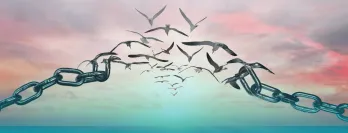
Quick Scan: Improve the Efficiency of Your Customs Operation
When you trade internationally and deal with Customs Authorities worldwide, you must make sure that all your systems, procedures and processes related to customs activities are compliant. Customs rules and regulations constantly change. The market in which you continuously operate changes, and your operation constantly evolves. With so many changing factors, there is always a risk that your customs processes are no longer on par with the latest situation.

Five Checkpoints of Great Customs Consultancy
Entrusting a customs consultant with your supply chain can be daunting. The customs landscape is ever-changing, and you are at risk of audits, delays, and lost business if you do not have your procedures in check. Therefore, regular customs consultancy is key to maintaining your business. However, what do you look for when choosing a company for such an important task?

Customs Compliance - When Bike Parts Become Not Assembled Bikes
It is essential to comply with all customs rules and regulations. Non-compliance can lead to delays, fines, or even refusal of your shipment. Sometimes the line between compliance and non-compliance is thinner than companies realize. We are seeing an increased number of issues with imported bike parts, where the Customs Authority sees them not as bike parts but as non-assembled bicycles.

The Importance of a Correct Customs Classification of Your Goods
How you classify your goods from a customs point of view matters. Wrongly classifying your goods can lead to delays in your customs declaration process or delays when the Customs Authorities detain a shipment at the border. It can also lead to higher duties and even significant fines.

The EU Customs Pre-Arrival Security and Safety Program: ICS2
The EU Customs is taking steps to improve the entry security and safety border controls. According to the European Commission, it entails an overhaul and reform from multiple perspectives, like IT, legal, customs risk management/controls and trade operational perspectives.

What is a certificate of origin and when do I need one?
A Certificate of Origin is a certified document that states what the country of origin is of a specific product. As the International Chamber of Commerce (ICC) states, ‘it declares the ‘nationality’ of your product. Certificates of Origin are one-time documents that accompany your shipments.

Releasing Non-Union Goods into Free Circulation
When you import goods into the European Union you have to bring them into Free Circulation. Free Circulation implies non-Union goods which have been cleared by European customs, allowing you to sell or utilise these goods within countries in the European Union.










